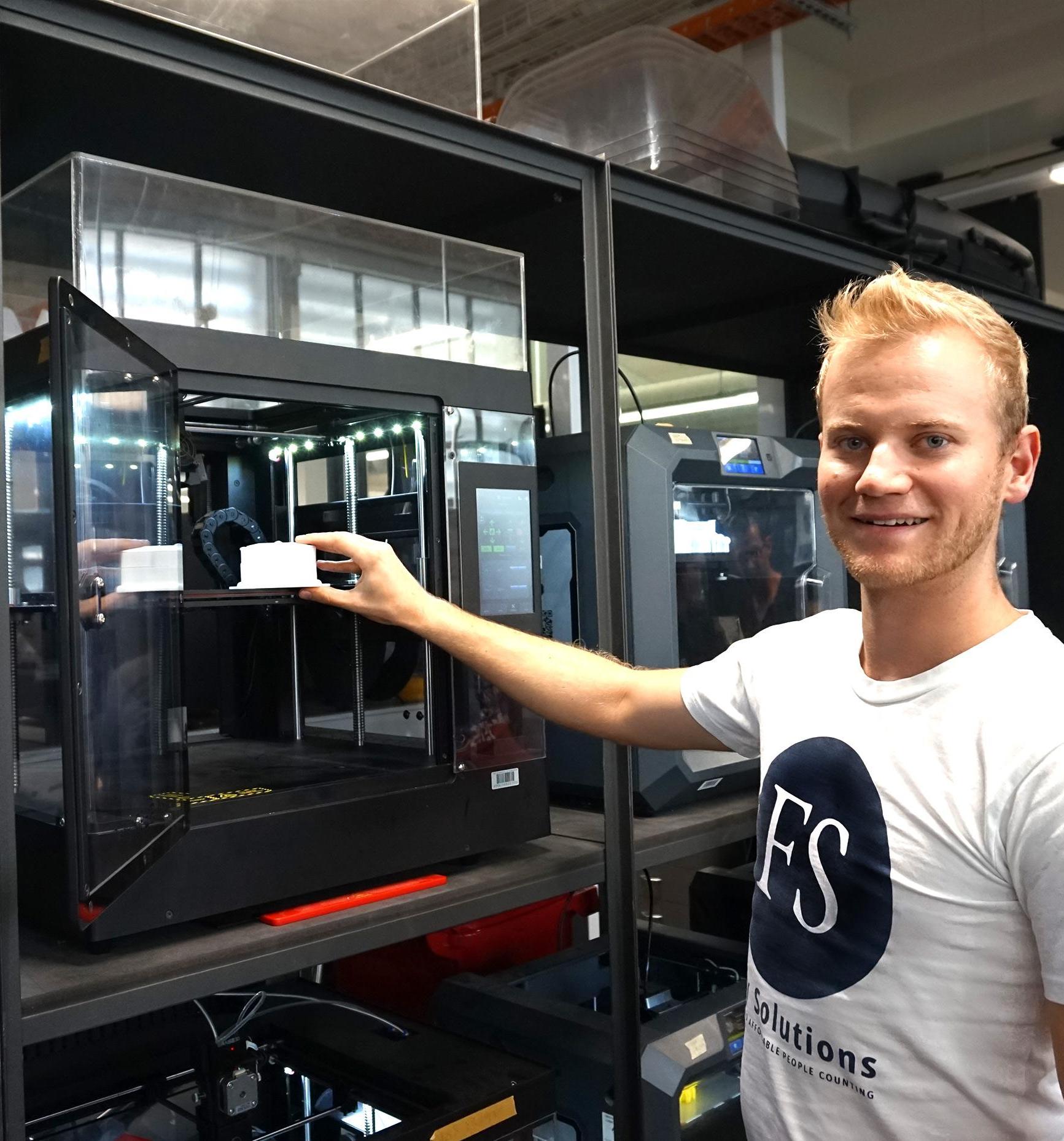Thermal infrared counting technology developed by a University of Queensland entrepreneur is now being used in the University’s makerspace facility to monitor foot traffic.

Fiffy Solutions, a startup that grew out of UQ’s 2019 ilab Accelerator program, has supplied UQ Innovate with technology that gathers real-time data about how buildings are being used. By combining smart algorithms with advanced sensors, Fiffy Solutions offers clients insights on how many people are in which building during what time.
For UQ Innovate – a newly developed 1200 square meter, $3 million facility for staff and students to access digital design spaces and modern engineering technologies – the utilisation data provided by Fiffy Solutions will help to get actual information about how the workshop is used after the major upgrade.
The Master of Business in Innovation and Entrepreneurship alumnus behind the technology, Mr Julian Stein, said the ability to track people’s movements creates huge opportunities for facility managers to increase productivity and energy efficiency.
“Fiffy Solutions provides real-time data about the occupancies in Makerspace and monitors foot traffic across all workshop facilities. For example, the device informs management about low-use times and days, when electricity and air-conditioning could get potentially turned off because of infrequent use, or the device could inform future capital works predicting if additional equipment or space is needed,” Mr Stein said.
“The benefit of our thermal cameras over others is that the counters only detect the body heat of people to count them so we’re protecting privacy rights.”
Powered by batteries, the devices also simplify the installation process and make it less expensive than other systems that are hard-wired into electricity.
UQ Property & Facilities Director Mr Steven Dickson enabled Fiffy Solutions to be the first company to commercially trial a battery-powered device.
“Steve and his team supported us through early product testing and funding and allowed us to install 22 devices across UQ’s St Lucia campus,” Mr Stein said.
“We participated in two space audits and mainly tested hard-wired people counting devices. For taking the next step to improve accuracy as well as expanding battery life of the wireless counters, we needed to have an environment where we can build, measure and learn quickly.”
This is how they found the perfect partner in Mr Vince Kelly, manager of UQ Innovate,
Mr Kelly said that, being a new facility and completely new approach for UQ, there isn’t an existing model for having an open access makerspace.
“We have no historical data about the numbers of people who’ll use the space at any given time or what the peak demand periods will be over a week, month or year,” he said.
“The data from Fiffy Solutions will help shape our investment decisions about what sort of equipment we should buy, because we will monitor the foot traffic to these machines and usage. Also, it will help with budgeting arrangements with staffing, so at peak demand periods we can roster more staff on.”
“Working with Fiffy Solutions and becoming a paying customer is a great way to support a new startup, as they don’t run on oxygen alone.”
Equally, Fiffy Solutions is undertaking beta testing and prototyping in-field so the Makerspace can support the process to develop a more refined design.
“It’s quite rewarding working with a startup so early in the piece,” Mr Kelly says.
“Fiffy Solutions has a commercial outcome that they’re chasing, and we have a commercial need that’s met, and being able to bring that together and support one another is great.”
Media: Mr Vince Kelly, vince.kelly@uq.edu.au , +61 (0)417 321 035; Julian Stein, julian@fiffysolutions.com, +61 (0)412323518



